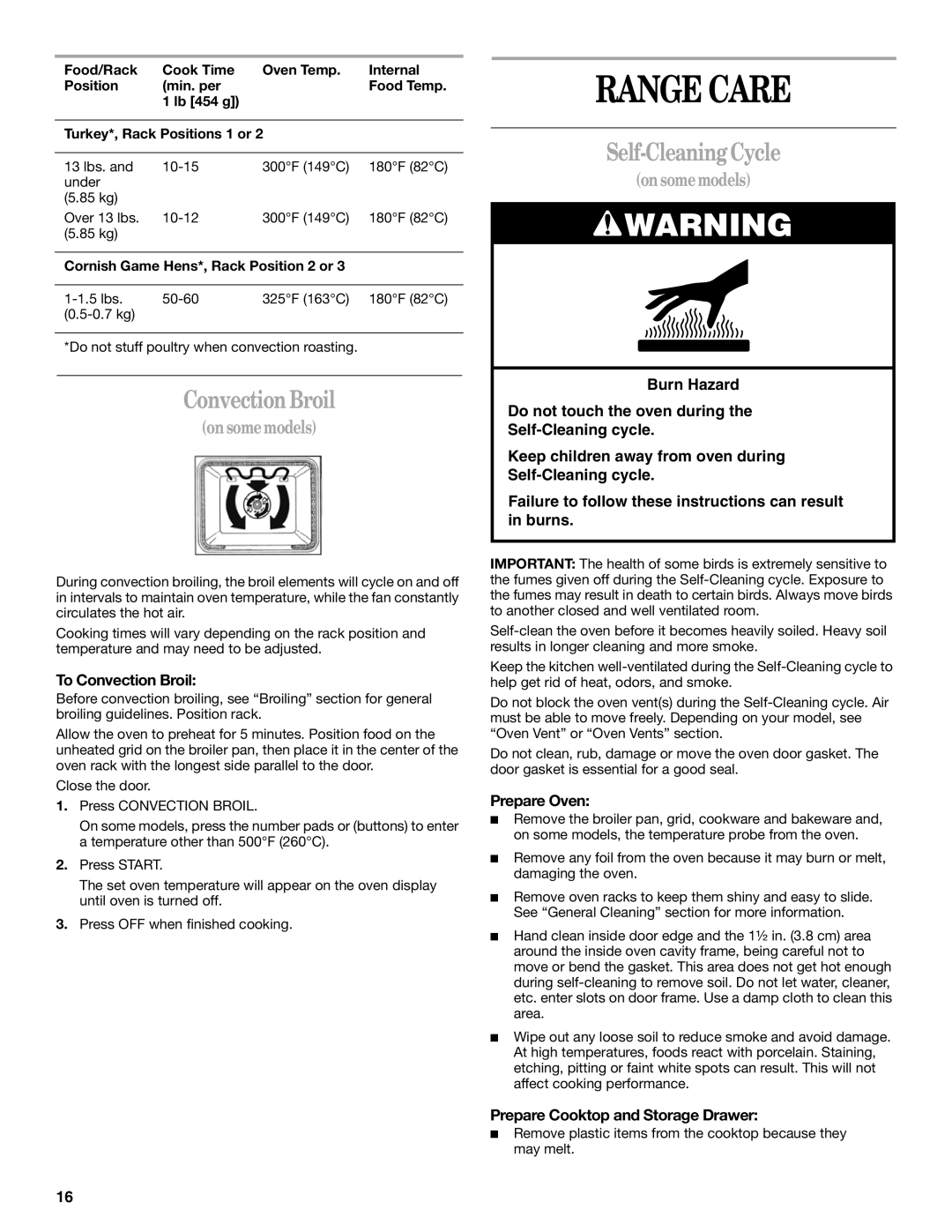
Food/Rack | Cook Time | Oven Temp. | Internal |
Position | (min. per |
| Food Temp. |
| 1 lb [454 g]) |
|
|
|
| ||
Turkey*, Rack Positions 1 or 2 |
| ||
|
|
|
|
13 lbs. and | 300°F (149°C) | 180°F (82°C) | |
under |
|
|
|
(5.85 kg) |
|
|
|
Over 13 lbs. | 300°F (149°C) | 180°F (82°C) | |
(5.85 kg) |
|
|
|
|
| ||
Cornish Game Hens*, Rack Position 2 or 3 |
| ||
|
|
|
|
325°F (163°C) | 180°F (82°C) | ||
|
|
| |
*Do not stuff poultry when convection roasting.
Convection Broil
(on some models)
During convection broiling, the broil elements will cycle on and off in intervals to maintain oven temperature, while the fan constantly circulates the hot air.
Cooking times will vary depending on the rack position and temperature and may need to be adjusted.
To Convection Broil:
Before convection broiling, see “Broiling” section for general broiling guidelines. Position rack.
Allow the oven to preheat for 5 minutes. Position food on the unheated grid on the broiler pan, then place it in the center of the oven rack with the longest side parallel to the door.
Close the door.
1.Press CONVECTION BROIL.
On some models, press the number pads or (buttons) to enter a temperature other than 500°F (260°C).
2.Press START.
The set oven temperature will appear on the oven display until oven is turned off.
3.Press OFF when finished cooking.
RANGE CARE
Self-Cleaning Cycle
(on some models)
![]() WARNING
WARNING
Burn Hazard
Do not touch the oven during the
Keep children away from oven during
Failure to follow these instructions can result in burns.
IMPORTANT: The health of some birds is extremely sensitive to the fumes given off during the
Keep the kitchen
Do not block the oven vent(s) during the
Do not clean, rub, damage or move the oven door gasket. The door gasket is essential for a good seal.
Prepare Oven:
■Remove the broiler pan, grid, cookware and bakeware and, on some models, the temperature probe from the oven.
■Remove any foil from the oven because it may burn or melt, damaging the oven.
■Remove oven racks to keep them shiny and easy to slide. See “General Cleaning” section for more information.
■Hand clean inside door edge and the 1½ in. (3.8 cm) area around the inside oven cavity frame, being careful not to move or bend the gasket. This area does not get hot enough during
■Wipe out any loose soil to reduce smoke and avoid damage. At high temperatures, foods react with porcelain. Staining, etching, pitting or faint white spots can result. This will not affect cooking performance.
Prepare Cooktop and Storage Drawer:
■Remove plastic items from the cooktop because they may melt.
16
